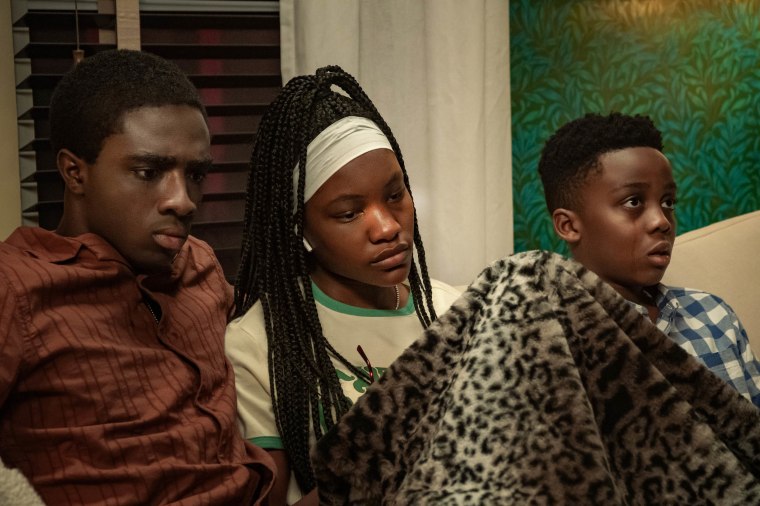It's not a remake of the 1972 John Boorman caper, as one might be led to believe, though it does aims to scare just the same. Yet apart from the gratuitous addition of the article "The", there's really a world of a difference between the two films. For starters, the classic succeeded.
Lee Daniels' first horror outing is also his first directorial stint since 2021's The United States vs. Billie Holiday. The said biopic earned singer Andra Day her Golden Globe for Best Lead Actress in a Drama. There's no surprise seeing her back as Daniels' muse, this time as biracial alcoholic mom, Ebony Jackson.

The Deliverance takes cues from the real-life case of Indiana's Latoya Ammons, whose family was plagued by malevolent spirits after moving into her new home. Consequently, the film mirrors all the details, down to the presence of an ailing grandmother. But chilling inspiration aside, this is nothing we haven't seen before. Despite the efforts of a game and capable cast, this plays like a checklist of possession tropes, from expletives, contortions, and a bit of levitation. Linda Blair already made that iconic in 1973. Here, bearing that brunt are the three kids Nate (Stranger Things' Caleb McLaughlin), Shante (Demi Singleton), and, especially the youngest, Andre (Anthony Jenkins). It's Dre who discovers the strange hole that apparently leads to you-know-where. He also delivers the film's grossest moment.

But truth be told, it's Glenn Close they have to thank for her ability to make the unwatchable watchable just by showing up. She does more than steal the show. She salvages it, as Ebony's cancer-stricken, rebel-turned-religious convert mom. That, considering she may have uttered the trashiest line in her entire career.
Also noteworthy are the who's-who of other recent Oscar darlings. It's comforting to see Mo'Nique as a child services worker, knowing she once feuded with Daniels fresh from her Precious win. Now she's here, replacing Octavia Spencer. There's also King Richard's Aunjanue Ellis-Taylor as the rogue reverend on stand-by. In effect, she's this film's Father Karras and Father Merin rolled into one. And she does have her knockout moments.
Preaching faith emerges as the ultimate agenda, which is usually the case in the sub-genre. But with characters who don't draw empathy both before and after the ordeal, it's difficult to feel involved. It makes the actual deliverance feel neither enlightening nor redeeming. It feels mandatory.
No comments:
Post a Comment